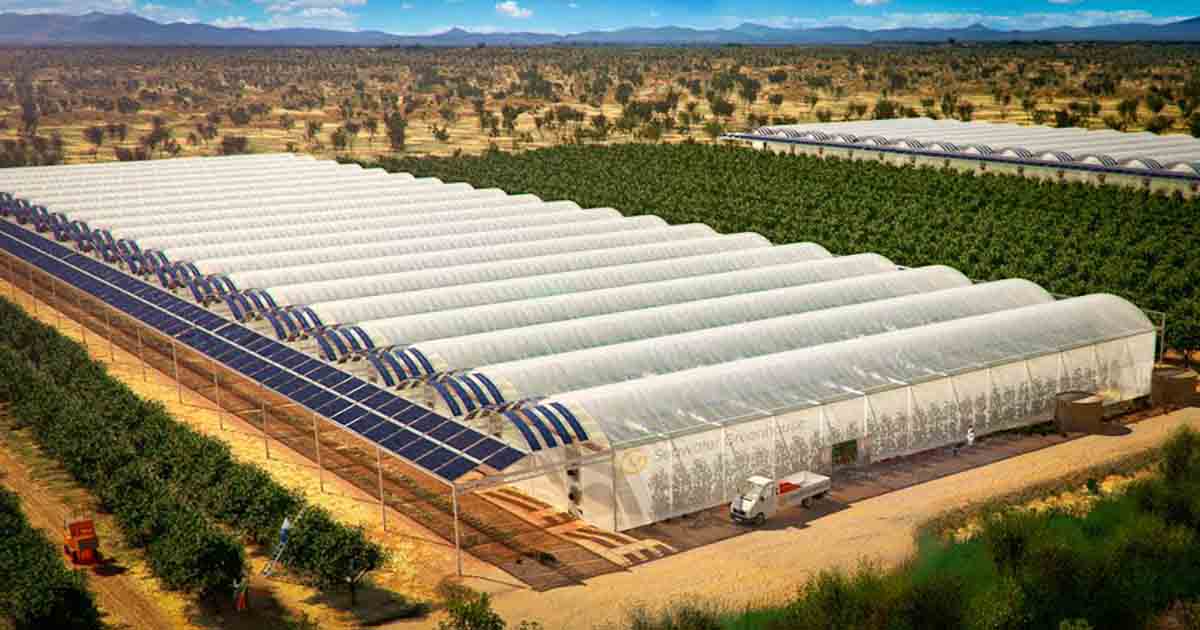Farming is probably the world’s oldest profession and something that is obviously universal to every culture and race in the world.
Since the beginning of time, farming has been the backbone of any society. While the methods may differ based on such things as technology, environment and financial means, the one thing that never changes is that farming will always be a necessity.
So, anything that can safely help farmers more effectively and efficiently produce the crops and livestock we need to survive is welcomed news.
There is little argument that the resources needed to farm in the traditional manner (soil and water, for example) are finite, meaning they can potentially run out at any given time. Proponents of genetically modified organisms (GMOs) use this reasoning to push their agenda, claiming GMOs can ensure hardier and larger crop yields, among other things.
Debunking GMOs
It should come as no surprise that GMOs, and the question of their necessity for our survival, revolve around money.
Mammoth biotech companies like Monsanto that have been running the industry for decades, claiming that GMOs will increase crop yields and thus solve the world’s famine problem, while also decreasing costs for farmers.
But the truth is that Monsanto is the only entity that will ever prosper as a result of GMOs. The company has been aggressively lobbying Congress for years to keep patent laws in place that force farmers to purchase new GE seeds every year.
In the meantime, reports like Failure to Yield, which was published by the Union of Concerned Scientists (UCS) in 2009, and evaluated 20 years of GM research and 13 years of commercialization, are trickling in, clearly showing GM crops do not, in fact, increase crop yield. (1)
Despite the undeniable and growing evidence that GMOs are inherently harmful, (2) without more viable ways to ensure we are able to sustain the billions of people on this planet, GMOs will continue to dominate the farming industry, until every crop is modified, leaving little to nothing of the original plants.
It’s a truly scary thought when you consider in 2013 alone, by its own admission, the United States Department of Agriculture (USDA) said 93 percent of all soybeans and 85 percent of all corn grown in the US was already genetically modified. (3)
Apples, potatoes and wheat are next in line for genetic engineering (GE) approval. While we are thankfully several years away from genetically modified livestock, it’s not from a lack of trying. Currently, GE salmon is awaiting approval in the US.
While GE livestock does not directly affect us at this time, indirectly it still plays a significant role in the amount of GMOs we consume every day.
Soybeans are the foundation of most animal feed. And right now, 60 to 90 percent of world soybean exports are genetically modified. Studies clearly link animals that eat GMO feed with serious health issues. (4) And then, of course, we eat these unhealthy animals, which scientists believe may also be linked to any number of health issues in humans.
Solar Panel Farm to the Rescue
Science may have just found a way to allow farmers to grow crops in even the most inhospitable places, without even a handful of soil! This new technology also solves the issue of finite resources like water, land and energy.
Sundrop Farms, a relatively new company in the business of creating sustainable agriculture, revealed their high-tech greenhouses that offer viable solutions for growing crops in otherwise unsuitable locations and all while reducing the need for finite natural resources.
The company contends that by 2050, rising populations will result in a 50 percent increase in food demand. And when you add climate change, which is linked to an increasing number of more severe and catastrophic weather events, and the growing concern of dwindling fresh water resources to the mix, it paints a very gloomy picture.
In 2010, however, Sundrop launched its first pilot farm in Port Augusta, South Australia, a desert that under normal circumstances could never sustain crop farming using traditional agricultural methods.
Using seawater and natural sunlight, Sundrop Farms has essentially managed to not only negate any possible effects of climate change like droughts, floods or other natural occurrences, but also the need for GMOs that allegedly defend crops from natural pests and increase crop yields.
The company has developed technology that integrates “solar power, electricity generation, fresh water production and hydroponics.” And according to the company, this technology produces just as much food as traditional farming, and significantly better. (5)
17,000 Tons of Food Every Year
Sundrop’s high-tech greenhouses can yield 17,000 metric tons of food every year. It uses coconut husks in place of soil, 23,000 mirrors to reflect solar power from the desert sun, and desalinated seawater to water the crops on 20-hectares (roughly 49,400 acres) of land. (6) “We then use sustainably sourced carbon dioxide and nutrients to maximize the growth of our crops.”
And because their crops are grown hydroponically (don’t require soil), Sundrop is able to grow their produce on degraded land in even the most arid areas that are otherwise considered too barren for agriculture.
And when it comes to keeping pests at bay, Sundrop says there is no need for chemicals. “As well as using carnivorous insects to control pests, we’ve also found that they don’t like the saltwater that we use to help keep our greenhouses cool.” (7)
In 2016, the company broke ground on a new farm in Tennessee. While some may argue the $200 million price tag is excessive, is there really any price you can put on your health? With no need for GMOs or harmful chemicals, a year-round growing season, and the free energy from the sun, Sundrop says the operation will quickly pay for itself.
